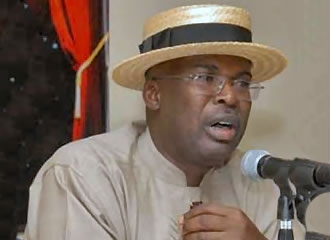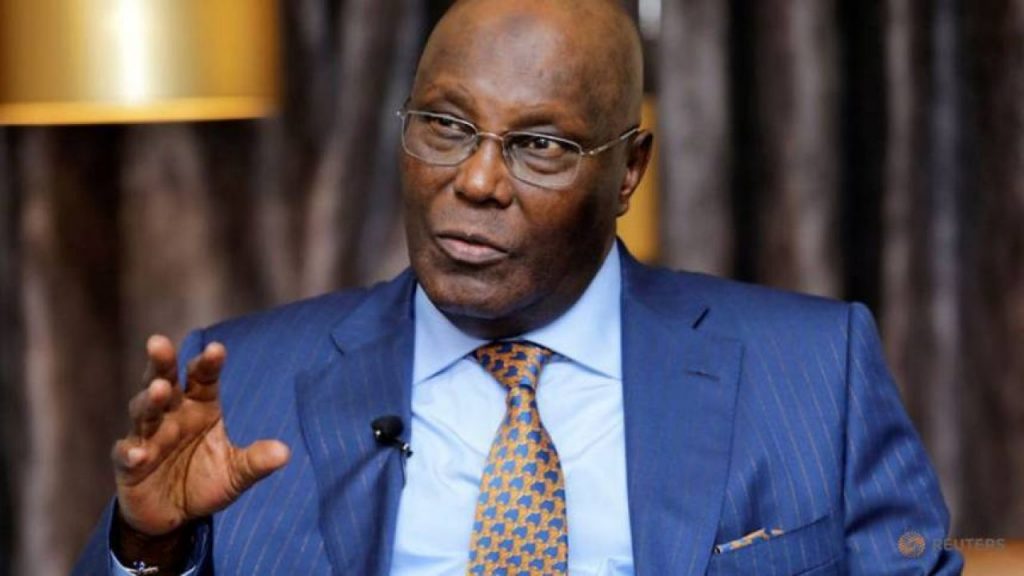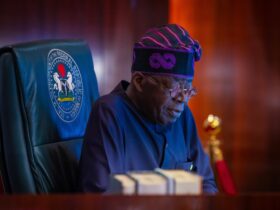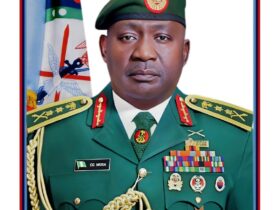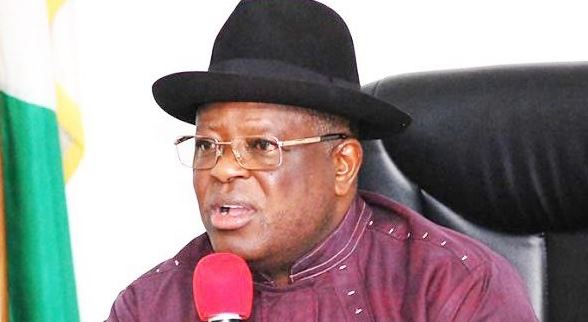Former Vice President and Presidential Candidate of Peoples Democratic Party (PDP), Atiku Abubakar has declared that he is not going away from the political scene yet, despite his disappointment over the Supreme Court verdict.
He said, “As for me and my party this phase of our work is done. However, I am not going away. For as long as I breathe I will continue to struggle, with other Nigerians, to deepen our democracy and rule of law and for the kind of political and economic restructuring the country needs to reach its true potential. That struggle should now be led by the younger generation of Nigerians who have even more at stake than my generation.”
Atiku made this declaration at his world press conference in Abuja after the Supreme Court affirmed Bola Tinubu’s election. Atiku lost to Tinubu.
The former Vice President also made some proposals that he believes will advance Nigeria’s democracy
He said, “So, let me make a few proposals that I believe will help. We can urgently make constitutional amendments that will prevent any court or tribunal from hiding behind technicalities and legal sophistry to affirm electoral heists and undermine the will of the people. Our democracy must mean something; it must be substantive. Above all, it must be expressed through free, fair and transparent elections that respect the will of the people.
“Firstly, we must make electronic voting and collation of results mandatory. This is the 21st century and countries less advanced than Nigeria are doing so already. It is only bold initiatives that transform societies.
“Secondly, we must provide that all litigation arising from a disputed election must be concluded before the inauguration of a winner. This was the case in 1979. The current time frame between elections and inauguration of winners is inadequate to dispense with election litigations.
According to Atiku, “What we have currently is akin to asking thieves to keep their loot and use the same to defend themselves while the case of their robbery is being decided. It only encourages mandate banditry rather than discourages it.
“Thirdly, in order to ensure popular mandate and real representation, we must move to require a candidate for President to earn 50% +1 of the valid votes cast, failing which a run-off between the top two candidates will be held. Most countries that elect their presidents use this Two-Round System (with slight variations) rather than our current First-Past-the-Post system.
“Examples include France, Finland, Austria, Bulgaria, Portugal, Poland, Turkey and Russia, Argentina, Brazil, Ivory Coast, Sierra Leone, Namibia, Mozambique, Madagascar and even Liberia where a run-off is expected to hold in the coming days.
“Fourthly, in order to reduce the desperation of incumbents and distractions from governing and also to promote equity and national unity, we need to move to a single six-year term for President to be rotated among the six geo-political zones. This will prevent the ganging up of two or more geo-political zones to alternate the presidency among themselves to the exclusion of other zones.
“INEC should be mandated to verify the credentials submitted to it by candidates and their parties and where it is unable to do so – perhaps because the institutions involved did not respond in time – it must publicly state so and have it on record.
“A situation where a candidate submits contradictory credentials to INEC in different election cycles and the electoral umpire accepts them without question points to gross negligence, at best, or collusion to break the law by the leadership of the INEC, at worst. The submission of contradictory qualifying documents by a candidate as well as those found to be forged or falsified should disqualify a candidate even if the falsification or forgery is discovered after the person had been sworn into office.
“The burden of proving that a document submitted to INEC is forged should not be on the opposing candidates in the election. It is never the responsibility of an applicant for a job to prove that the person who eventually got the job did so with forged documents.
“In addition to these proposed constitutional amendments, the Electoral Act should be amended to provide that, except where they explicitly violate the Constitution and other laws, the rules and procedures laid down by the electoral umpire and made public for the benefit of the contestants and the voters will be treated as sacrosanct by the courts in deciding on election disputes.
“A referee cannot be allowed to set the rules for the game only to change or ignore them when one side has scored a goal or is about to win the match. We must restore confidence in our electoral system which the current leadership of INEC has completely eroded and undermined. Also, we need well-thought out provisions in the legislation and regulations to reform the judiciary, including the introduction of an automated case assignment system; transparency in the appointment of judges; a practice directory that stresses that the goal of judges in election cases should be to discover and affirm voters’ choice rather than disregarding voters’ choice for the sake of technicalities.
“There should also be publicly available annual evaluation of the performance of judges using agreed criteria. By improving the transparency of the electoral process and reducing the incentives to cheat, in addition to transparency in the appointment of judges and other judicial reforms, the number of election petitions as well as corruption in the judiciary will be significantly reduced. More importantly, we would have succeeded in taking away the right to elect leaders from the courts and return it to the voters to whom it truly belongs.”




